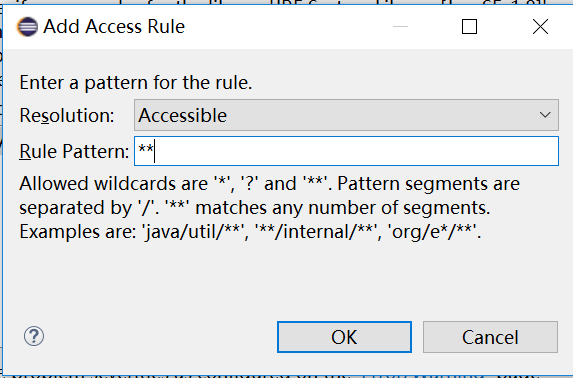加密工具例子(MD5)1:
MD5 是一种常见的加密手段,只有加密方法没有解密方法。可以用做登录密码加密等场景。
//@www.1b23.com
import java.security.MessageDigest;
//MD5加密
//md5 是一种常见的加密手段,只有加密方法没有解密方法。可以用做登录密码加密等场景
public class MD5Util {
public static final String CHARSET = "UTF-8";
public final static String MD5(String s) {
char hexDigits[]={'0','1','2','3','4','5','6','7','8','9','A','B','C','D','E','F'};
try {
byte[] btInput = s.getBytes();
// 获得MD5摘要算法的 MessageDigest 对象
MessageDigest mdInst = MessageDigest.getInstance("MD5");
// 使用指定的字节更新摘要
mdInst.update(btInput);
// 获得密文
byte[] md = mdInst.digest();
// 把密文转换成十六进制的字符串形式
int j = md.length;
char str[] = new char[j * 2];
int k = 0;
for (int i = 0; i < j; i++) {
byte byte0 = md[i];
str[k++] = hexDigits[byte0 >>> 4 & 0xf];
str[k++] = hexDigits[byte0 & 0xf];
}
return new String(str);
} catch (Exception e) {
e.printStackTrace();
return null;
}
}
}加密工具例子2:
import com.sun.org.apache.xerces.internal.impl.dv.util.Base64;
import javax.crypto.Cipher;
import javax.crypto.KeyGenerator;
import javax.crypto.Mac;
import javax.crypto.SecretKey;
import javax.crypto.spec.SecretKeySpec;
import java.security.MessageDigest;
import java.security.SecureRandom;
//@www.1b23.com
public class EncryptUtil {
public static final String MD5 = "MD5";
public static final String SHA1 = "SHA1";
public static final String HmacMD5 = "HmacMD5";
public static final String HmacSHA1 = "HmacSHA1";
public static final String DES = "DES";
public static final String AES = "AES";
/**编码格式;默认使用uft-8*/
public String charset = "utf-8";
/**DES*/
public int keysizeDES = 0;
/**AES*/
public int keysizeAES = 128;
public static EncryptUtil me;
private EncryptUtil(){
//单例
}
//双重锁
public static EncryptUtil getInstance(){
if (me==null) {
synchronized (EncryptUtil.class) {
if(me == null){
me = new EncryptUtil();
}
}
}
return me;
}
/**
* 使用MessageDigest进行单向加密(无密码)
* @param res 被加密的文本
* @param algorithm 加密算法名称
* @return
*/
private String messageDigest(String res,String algorithm){
try {
MessageDigest md = MessageDigest.getInstance(algorithm);
byte[] resBytes = charset==null?res.getBytes():res.getBytes(charset);
return base64(md.digest(resBytes));
} catch (Exception e) {
e.printStackTrace();
}
return null;
}
/**
* 使用KeyGenerator进行单向/双向加密(可设密码)
* @param res 被加密的原文
* @param algorithm 加密使用的算法名称
* @param key 加密使用的秘钥
* @return
*/
private String keyGeneratorMac(String res,String algorithm,String key){
try {
SecretKey sk = null;
if (key==null) {
KeyGenerator kg = KeyGenerator.getInstance(algorithm);
sk = kg.generateKey();
}else {
byte[] keyBytes = charset==null?key.getBytes():key.getBytes(charset);
sk = new SecretKeySpec(keyBytes, algorithm);
}
Mac mac = Mac.getInstance(algorithm);
mac.init(sk);
byte[] result = mac.doFinal(res.getBytes());
return base64(result);
} catch (Exception e) {
e.printStackTrace();
}
return null;
}
/**
* 使用KeyGenerator双向加密,DES/AES,注意这里转化为字符串的时候是将2进制转为16进制格式的字符串,不是直接转,因为会出错
* @param res 加密的原文
* @param algorithm 加密使用的算法名称
* @param key 加密的秘钥
* @param keysize
* @param isEncode
* @return
*/
private String keyGeneratorES(String res,String algorithm,String key,int keysize,boolean isEncode){
try {
KeyGenerator kg = KeyGenerator.getInstance(algorithm);
if (keysize == 0) {
byte[] keyBytes = charset==null?key.getBytes():key.getBytes(charset);
kg.init(new SecureRandom(keyBytes));
}else if (key==null) {
kg.init(keysize);
}else {
byte[] keyBytes = charset==null?key.getBytes():key.getBytes(charset);
kg.init(keysize, new SecureRandom(keyBytes));
}
SecretKey sk = kg.generateKey();
SecretKeySpec sks = new SecretKeySpec(sk.getEncoded(), algorithm);
Cipher cipher = Cipher.getInstance(algorithm);
if (isEncode) {
cipher.init(Cipher.ENCRYPT_MODE, sks);
byte[] resBytes = charset==null?res.getBytes():res.getBytes(charset);
return parseByte2HexStr(cipher.doFinal(resBytes));
}else {
cipher.init(Cipher.DECRYPT_MODE, sks);
return new String(cipher.doFinal(parseHexStr2Byte(res)));
}
} catch (Exception e) {
e.printStackTrace();
}
return null;
}
private String base64(byte[] res){
return Base64.encode(res);
}
/**将二进制转换成16进制 */
public static String parseByte2HexStr(byte buf[]) {
StringBuffer sb = new StringBuffer();
for (int i = 0; i < buf.length; i++) {
String hex = Integer.toHexString(buf[i] & 0xFF);
if (hex.length() == 1) {
hex = '0' + hex;
}
sb.append(hex.toUpperCase());
}
return sb.toString();
}
/**将16进制转换为二进制*/
public static byte[] parseHexStr2Byte(String hexStr) {
if (hexStr.length() < 1)
return null;
byte[] result = new byte[hexStr.length()/2];
for (int i = 0;i< hexStr.length()/2; i++) {
int high = Integer.parseInt(hexStr.substring(i*2, i*2+1), 16);
int low = Integer.parseInt(hexStr.substring(i*2+1, i*2+2), 16);
result[i] = (byte) (high * 16 + low);
}
return result;
}
/**
* md5加密算法进行加密(不可逆)
* @param res 需要加密的原文
* @return
*/
public String MD5(String res) {
return messageDigest(res, MD5);
}
/**
* md5加密算法进行加密(不可逆)
* @param res 需要加密的原文
* @param key 秘钥
* @return
*/
public String MD5(String res, String key) {
return keyGeneratorMac(res, HmacMD5, key);
}
/**
* 使用SHA1加密算法进行加密(不可逆)
* @param res 需要加密的原文
* @return
*/
public String SHA1(String res) {
return messageDigest(res, SHA1);
}
/**
* 使用SHA1加密算法进行加密(不可逆)
* @param res 需要加密的原文
* @param key 秘钥
* @return
*/
public String SHA1(String res, String key) {
return keyGeneratorMac(res, HmacSHA1, key);
}
/**
* 使用DES加密算法进行加密(可逆)
* @param res 需要加密的原文
* @param key 秘钥
* @return
*/
public String DESencode(String res, String key) {
return keyGeneratorES(res, DES, key, keysizeDES, true);
}
/**
* 对使用DES加密算法的密文进行解密(可逆)
* @param res 需要解密的密文
* @param key 秘钥
* @return
*/
public String DESdecode(String res, String key) {
return keyGeneratorES(res, DES, key, keysizeDES, false);
}
/**
* 使用AES加密算法经行加密(可逆)
* @param res 需要加密的密文
* @param key 秘钥
* @return
*/
public String AESencode(String res, String key) {
return keyGeneratorES(res, AES, key, keysizeAES, true);
}
/**
* 对使用AES加密算法的密文进行解密
* @param res 需要解密的密文
* @param key 秘钥
* @return
*/
public String AESdecode(String res, String key) {
return keyGeneratorES(res, AES, key, keysizeAES, false);
}
/**
* 使用异或进行加密
* @param res 需要加密的密文
* @param key 秘钥
* @return
*/
public String XORencode(String res, String key) {
byte[] bs = res.getBytes();
for (int i = 0; i < bs.length; i++) {
bs[i] = (byte) ((bs[i]) ^ key.hashCode());
}
return parseByte2HexStr(bs);
}
/**
* 使用异或进行解密
* @param res 需要解密的密文
* @param key 秘钥
* @return
*/
public String XORdecode(String res, String key) {
byte[] bs = parseHexStr2Byte(res);
for (int i = 0; i < bs.length; i++) {
bs[i] = (byte) ((bs[i]) ^ key.hashCode());
}
return new String(bs);
}
/**
* 直接使用异或(第一调用加密,第二次调用解密)
* @param res 密文
* @param key 秘钥
* @return
*/
public int XOR(int res, String key) {
return res ^ key.hashCode();
}
/**
* 使用Base64进行加密
* @param res 密文
* @return
*/
public String Base64Encode(String res) {
return Base64.encode(res.getBytes());
}
/**
* 使用Base64进行解密
* @param res
* @return
*/
public String Base64Decode(String res) {
return new String(Base64.decode(res));
}
} ![]()
问题:
import com.sun.org.apache.xerces.internal.impl.dv.util.Base64;
出现的问题是这个在eclipse中无法使用,解决方法如下:
(1)进入eclipse中的project下的properities:

(2)双击 java Build Path->JRE SystemLibrary->Access rules

(3)双击进入后,点击Add

(4)输入如下:

点击ok并应用即可。
 IDEA激活码
IDEA激活码


